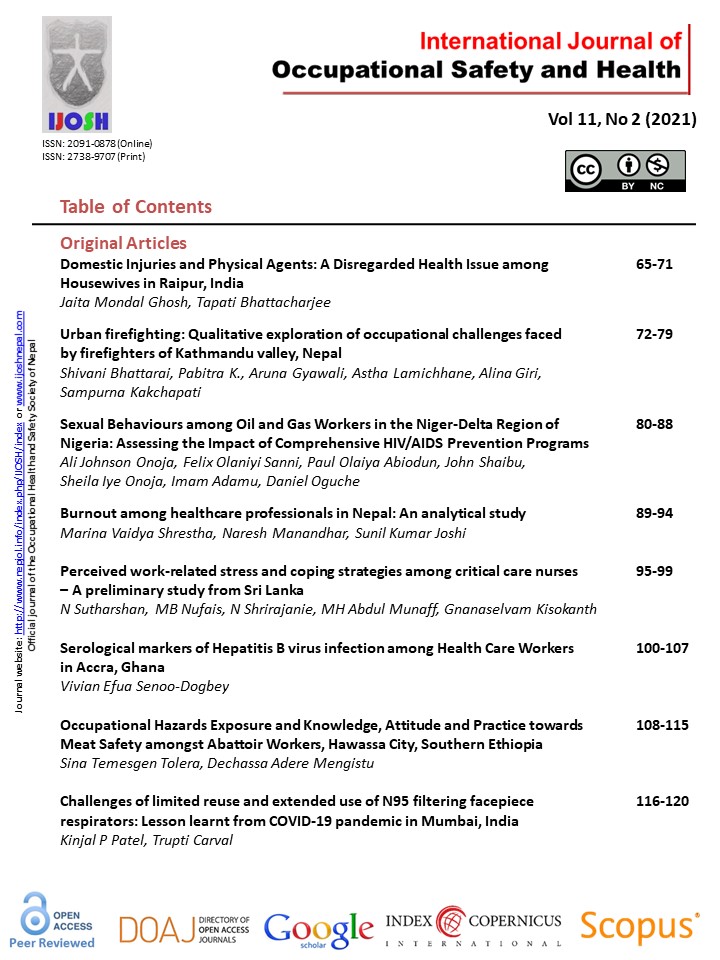Perceived work-related stress and coping strategies among critical care nurses – A preliminary study from Sri Lanka
DOI:
https://doi.org/10.3126/ijosh.v11i2.36139Keywords:
Coping strategies, Critical care, Nurses, Sri Lanka, StressAbstract
Introduction: Work-related stress has become a major concern among the nurses over the years. Nurses experience a high level of work-related stress when work demands exceed their ability to cope. The study aimed to assess the perceived work-related stress level and coping strategies among nurses working in Critical Care Units at a Base Hospital in the Eastern Province of Sri Lanka.
Methods: A cross sectional descriptive study was conducted among all staff nurses (105) working in critical care units. Data were collected using a validated and pre-tested self-administered questionnaire. A Perceived Stress Scale developed by Cohen et al. (1983) and validated in Sri Lanka was used to assess the work-related stress, along with coping strategies. Data were analyzed by descriptive statistics using SPSS version 21.
Results: Around 30% of nurses had higher level of perceived stress while 45% had moderate level of perceived stress. Nearly 81% of nurses stated that religious activities are used as a common coping strategy. In addition, 96% of them used ‘positive thinking’ while 70% of them used ‘time management’ as the main coping strategy.
Conclusion: The prevalence of work-related perceived stress among critical care nurses was high. Further, nurses use various emotion focused coping strategies such as regular engagement in religious activities and positive thinking and problem focused coping strategies such as time management and talk with friends/loved ones to overcome the work-related stress.
Downloads
Downloads
Published
How to Cite
Issue
Section
License
This license enables reusers to distribute, remix, adapt, and build upon the material in any medium or format for noncommercial purposes only, and only so long as attribution is given to the creator.





